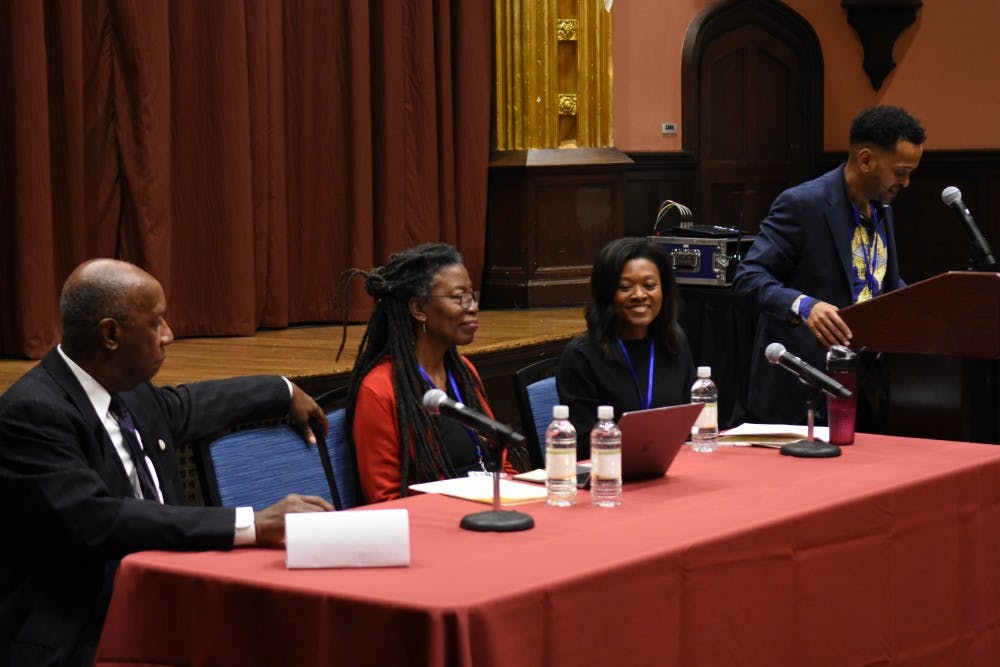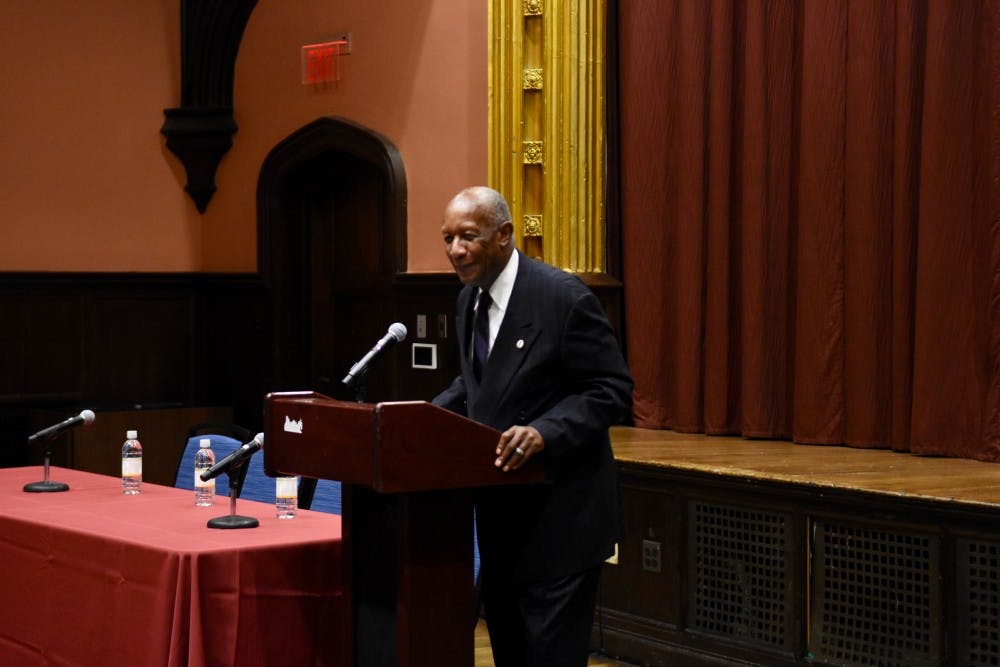
(Left to right) Howard Dodson, Hermine Pinson, Koritha Mitchell, and Dagmawi Woubshet.
Credit: Mira ShettyNotable scholars of African American history gathered in Houston Hall Thursday to kick off the 2019 Callaloo Conference, analyzing the historical impact of the first enslaved people's arrival to America 400 years ago.
The three-day conference, titled 'The Legacy of 1619,' began with a keynote address from historian Howard Dodson about the history and significance of the arrival of enslaved people to the United States. Dodson is the Director Emeritus of Howard University Libraries and former director of the New York Public Library Schomburg Center for Research in Black Culture.
At the event, Dodson discussed his work in contemporary revisionist history of the African diaspora, which focuses on the responses of enslaved people to their experiences rather than their victimization. The conference will continue on Friday and Saturday with readings and discussion panels on “The Future of Diasporas," “Dissident Genealogies,” and many other topics.
“We’re taking 1619 as a jump-off point to think about the past but also to anticipate what’s to come in the future,” English professor Dagmawi Woubshet said of the conference's theme.
The conference was organized by Callaloo Magazine, a publication established in 1976 to celebrate African-American creative literary works. Woubshet, who is also an associate editor of Callaloo, explained that the journal hosts the conference at a different U.S. university each year. This year's conference is taking place at Penn and is hosted by the English Department and several other campus departments and groups.
Following an introductory speech from Woubshet, Dodson highlighted the importance of studying the history of slavery.
“It is time to tell all the truths — I’m saying that plurally — about the founding moment in history of the slave trade, slavery, and racism in these United States," he said. “Teaching and learning about slavery has not been at the top of Americans’ learning list.”
Dodson added that this historical study should look at perspectives beyond the victimization of enslaved people.

Keynote speaker Howard Dodson discussed his work in contemporary revisionist history of the African diaspora.
“In the midst of slavery, the record of history in America is not simply what was done to them — no people’s history is a record of their victimization," Dodson said. "Rather, their true lives’ history is the record of what they did to change themselves and to change their world — slavery, segregation, and other forms of oppression notwithstanding.”
Penn has a long legacy of involvement in slavery. The Penn & Slavery Project, launched in 2017 as an undergraduate research initiative, has revealed that over 75 Penn trustees and faculty owned enslaved people, including the University’s first Provost, William Smith. In response to the group's findings, Penn formally acknowledged the University's ties to slavery in 2018, reversing a 2016 statement that said the University had found no direct involvement with the slavery.
“At this point, you know, there isn’t an American university that in one way or another, directly or indirectly, wasn’t connected to the enterprise of slavery," Woubshet said. He pointed to Georgetown University’s sale of 272 enslaved people in 1838 to keep the university afloat in a time of financial hardship.
In his convening speech, Woubshet said the beginnings of slavery in America bear continued relevance to the country today.
“The next three days provide us an occasion to commemorate this world historical event, to bring to bear the great advances made in African diaspora literary, visual, and cultural studies, to understand the significance of 1619 and its continued reverberations, [and] to raise questions that remain so germane in our cultural and political present," he said. "How do the political, economic, and cultural circumstances of the Virginia colony in 1619 speak to what’s in 2019 America?”
The Daily Pennsylvanian is an independent, student-run newspaper. Please consider making a donation to support the coverage that shapes the University. Your generosity ensures a future of strong journalism at Penn.
Donate







